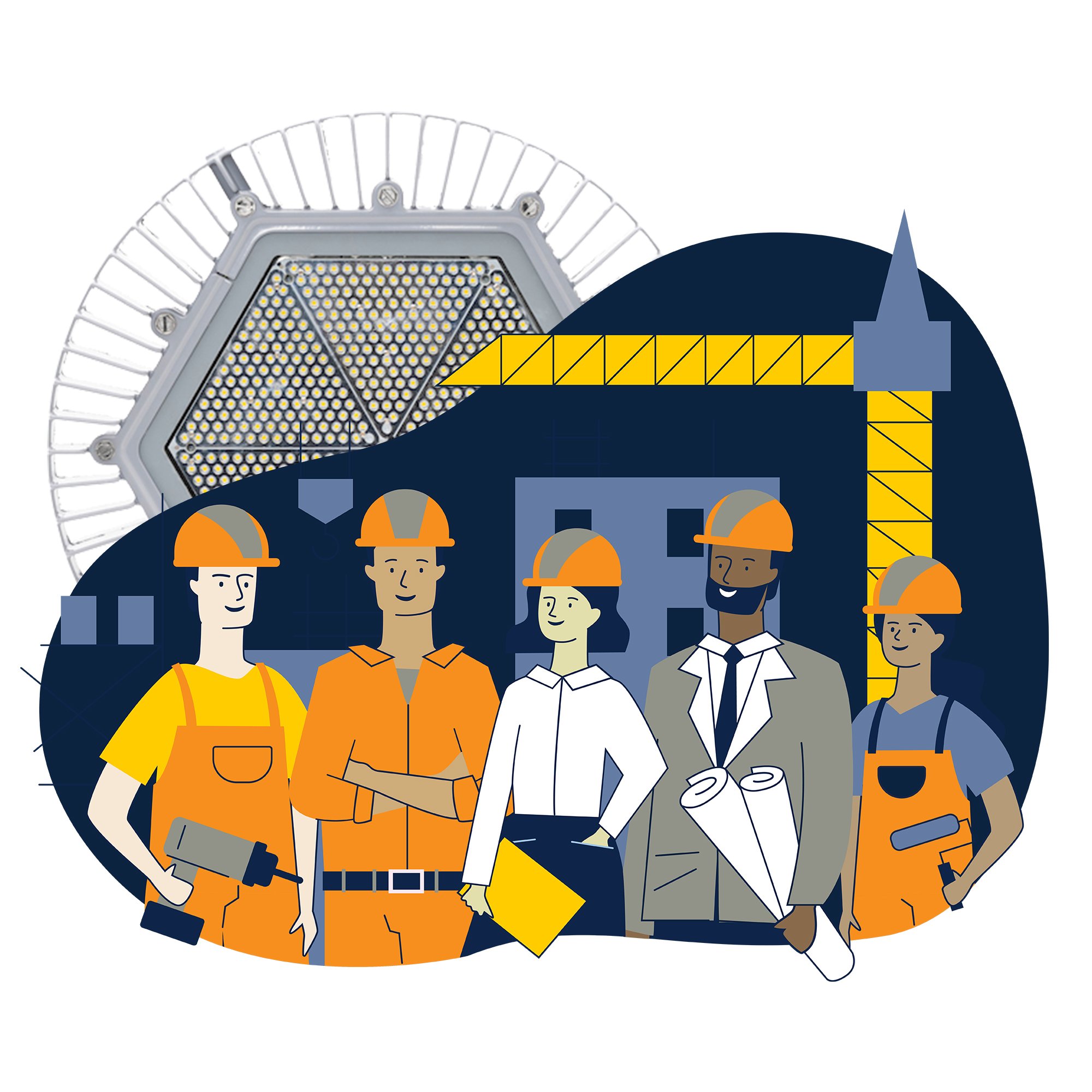Improving facility safety should be a top priority for every industrial worksite. Antiquated High Pressure Sodium, Metal Halide & Fluorescent lighting could be putting employees in unnecessary danger. Upgrading your facility to modern industrial LED lighting is a critical investment that can lower the risk of accidents, injuries and even fatalities. Below are 3 reasons why modern industrial-grade LED Lighting is a safer, more dependable option compared to legacy lighting.
1. LED lighting provides optimal quality color.
The inability to distinguish colors is a huge safety risk. The low color rendering of HPS lights create an unnatural orange glow that makes it very difficult to distinguish colors, which puts workers at risk of misinterpreting color cues. For example, warning placards and signs often rely on color-coding to communicate danger, and electrical wiring is color-coded so that crews may work safely. LED lighting delivers the ideal color for alertness, color perception, and productivity. LEDs can be designed to produce natural-looking white light, similar to daylight. The white light of LEDs encourages alertness and reduces fatigue by a factor of 5X by suppressing melatonin levels, compared to HPS.
2. LED lighting improves visibility of workplace hazards.
Industrial LED lighting is the safest, most efficient solution to address plant safety risks. Workplace accident rates are significant and can be improved with better illumination. Did you know US workers suffered 2.9 million injuries and 4,836 workplace fatalities in 2015? Poor visibility is the leading cause of slip, trip and fall hazards and contact with moving objects—some of the biggest risks in any facility. When overall illumination is increased accident rates decrease as much as 60%. Traditional HPS fixtures often provide poor illumination that makes it difficult for workers to locate hazards surrounding them. LED fixtures, on the other hand, produce quality light that enables workers to spot potential risks. LED lighting has been shown in studies and real-world case studies to improve illumination. In a Centers for Disease Control (CDC) LED study: “…floor trip hazard detection improved by 23.7%, discomfort glare was reduced by 45%, and disability glare was reduced by 53.8%.
3. LED lighting reduces harmful maintenance hazards.
Changing light bulbs is dangerous work in an industrial facility and could lead to risks including electrocution and falls from elevation. Not only must crews work at high elevation, they often must do so overtop production equipment. Conventional fixtures fail frequently under harsh environments making lighting maintenance an ongoing chore. Industrial LED fixtures last 3x longer than HPS which could essentially mean the end of lighting maintenance. In addition, HPS lighting emits high levels of unsafe UV radiation that can expose workers often without an individual even being aware. The potent neurotoxin Mercury can be released by accidental breakage during use or disposal (especially during maintenance). Did you know that a single HPS bulb contains enough mercury to poison an entire classroom of children? Switching to LED lighting fixtures is a much safer alternative because LEDs contain zero hazardous materials. The National Institute for Occupational Safety and Health asserted that, “LEDs have the potential to significantly reduce the frequency of accidents related to the maintenance, operation, and repair of lighting systems because the long life of LEDs would enable an exposure reduction to the associated hazards.”
Watch the below videos for more information on our industry leading LED solutions:
Reliability & the Dialight Difference
For more information, please visit www.dialight.com.

